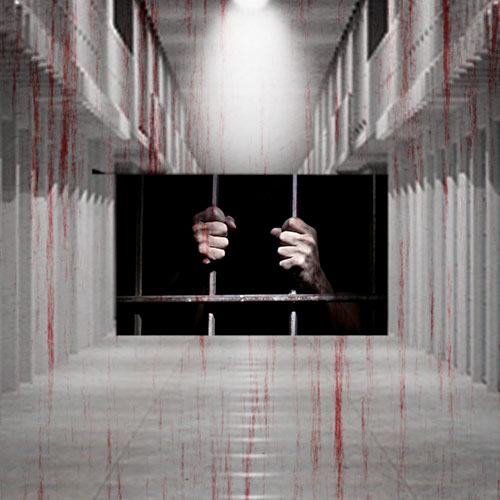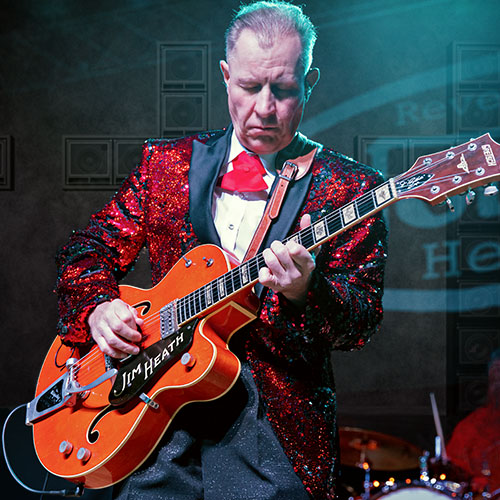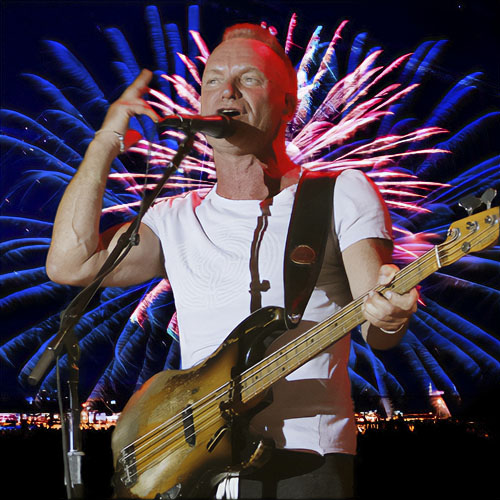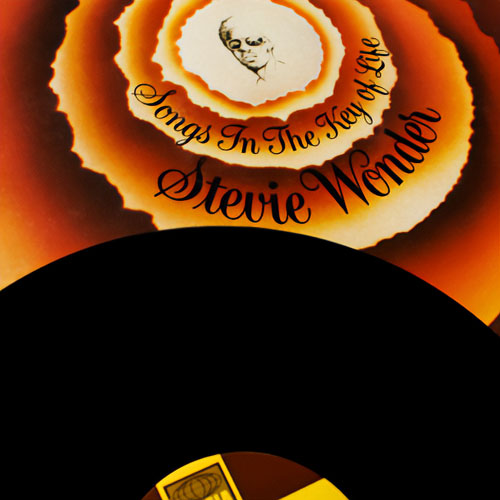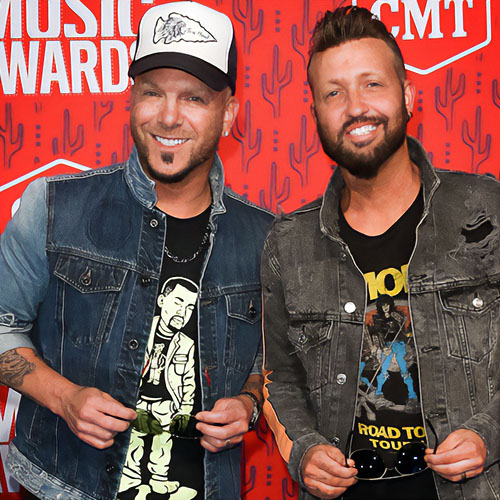Sure, Toby Keith has had a string of No. 1 hits, but what we — and he — want to talk about this Memorial Day is his work with U.S. troops and returning vets.
How Do You Like Him Now?
Toby Keith’s current album, Clancy’s Tavern, inspired by his frequent childhood visits to his grandmother’s club, debuted at No. 1 last October. He was named Artist of the Decade at the 2011 American Country Awards. His hit single “Red Solo Cup,” the second off Clancy’s Tavern, was also the No. 1 country download on iTunes. Plus, Beverage Media magazine called his Wild Shot Mezcal “the number-one premium mezcal in the U.S. market.” He’s even been named the nation’s top-earning country performer by Forbes.
Yet Oklahoma’s favorite son likes nothing so much as to talk about his trips overseas to entertain U.S. troops, and about his work with returning veterans. Keith, 50, stepped into that work after his ubiquitous anthem, “Courtesy of the Red, White, and Blue (The Angry American)” — a virulent response to the September 11 terrorist attacks — proved a rallying cry for belligerent compatriots. Never mind that critics denounced it as “knee-jerk jingoism.”
Keith put his money where his mouth was, and after a 2003 trip to Baghdad, he began trying to improve conditions for Americans fighting abroad. On a trip to Afghanistan in 2007, he saw how troops in remote outposts lived between literal walls of sand, without creature comforts. That moved him to sponsor the USO2GO program, which distributes care packages to overseas U.S. bases. Keith is also a cofounder — with NFL players Tommie Harris, Roy Williams, and Mark Clayton — of Pros 4 Vets, which offers legal assistance and advice to Oklahomans who return from active duty.
As in his songs, in interviews Keith is forceful, outspoken, and passionate.
How did you get so involved with the USO?
Well, the first time I went over there was about ten years ago. I was just going to go for two weeks the year after my dad died, to honor him, and then I said, “Man, we’ve got to do this again.” I went the next year, and the USO said, “You could be a big force in the USO.” And so my agent, Curt Motley, became a board member, and he works tirelessly trying to get other entertainers to go over.
You made the news recently with your USO2GO program. How did that come about?
We were over there, and we saw that some of those FOBs [forward operating bases, or secured forward positions used to support tactical operations] had shitty conditions for R&R. Those boys take wire baskets and put cardboard in them, fill them with sand, stack ’em, and that’s their wall. And they put cardboard huts up to eat in, and put some tents up, and then they have a little room, maybe 20 by 30 feet, with some air piped into it, and they sit there trying to run a
DVD. So we put these care packages together that include things like DVD players and flat-screens and games and PS3s. The USO is a morale-lifter, and it brings a piece of home over.
Why do you keep going back? What does it satisfy in you personally?
There’s a big void there that needs to be filled. I’ve done 180 shows, and it takes that many to get the word out. And there’s such a big need for it. I go two weeks every year, and the USO board can use that as a tool to get other people to go. But you’ve got two strikes against you when you go. One’s political. A lot of people don’t want to associate themselves with it because of the political brush they’ll be painted with.
And there’s a distinct fear factor for a lot of people. That’s a big issue. We’ll land at a big base in Afghanistan, and then we’ll go to the small bases, little FOBs up on the front, and play as many forward bases as we can. I figure if I made it through 180 shows, you can at least go to Walter Reed hospital in D.C. and shake hands. But if you can get anybody to go once, they find out how great it is. It’s a wonderful geography lesson, a wonderful history lesson that you can’t get anywhere else. To talk with those guys who put their lives on the line every day, and to eat lunch, shake hands, and spend time with ’em, is just a wonderful experience.
You’ve had some scary experiences. Four mortars hit close to you and you had to hunker down in a bunker, for example.
Yeah, but that happens all the time. The people you’re surrounded by live under that duress every minute, so they’re prepared for it, and fortunately the enemy is terrible strategists, terrible warriors. So it would be like getting hit by a stray bullet in a major city in the U.S. The second that a launch is detected, they sound a siren, you get in a bunker, and the missiles hit, and then when it’s over, you go on with your day.
Was it easy for you to figure out what the soldiers wanted to hear?
The biggest reality check came the first year I was there. We’d been on a C-17 to Kuwait from Germany, and then we were on a C-130 from Kuwait into Baghdad. When we landed, it was dark and it was still 122 degrees. They took us to Camp Cook, which had just lost four guys a couple of hours before we arrived. And we played a very somber show. I didn’t know what to expect, so I had a bunch of comical stuff. I wanted to make ’em laugh. My dad used to sing a song called “Army Life” that was real popular back 50 years ago. So I wanted to write a bunch of stuff like that, play ’em four or five hits, play “Weed With Willie” and make ’em smile, especially since they’d just lost four guys. But it was still so somber that you just had to suck it up and get it done.
What’s your objective when you go over there? Just to entertain the men and women, or something else?
Just campaigning for the USO. Plus, it’s an extreme honor. I’ve made more relationships in the past ten years playing for the military over there than I ever made in my own industry. I’ve got thousands of people I call close friends who I can email and text message who are dependable people of solid character. But I don’t have five people who do what I do in my business that I can just pick the phone up and call and say, “How’s it going?”
Do you have a story of one of those relationships?
That first trip they took us to Fallujah, and six days later, after we’d played 12 or 13 shows, we were back in Baghdad, ready to leave, and they said, “Would you guys please step off the plane?” We all got in formation with ’em, and they brought a flag-draped casket onto our cargo plane. It was First Lieutenant Erik McCrae. When you sit in those cargo planes, the seats fold down from the side and you face sideways, and you look across to your buddies on the other side. The cargo’s buckled in the middle. And there the casket sat, right between us. That was just the most somber flight back to Kuwait. Everybody’s hands were folded in their laps, and they had their heads down. I have become very close to First Lieutenant McCrae’s family, because they came to one of my shows in Oregon. His dad was an ex-soldier, officer, and he was strong as ever, but his mom was crying, and the whole family — the sister and the grandmas — were like, “You rode out of the battlefield with my son. He was just on his way home.” And I was like, “I didn’t do anything. I was just lucky enough to ride with him.” Here we are, eight years later, and his family still comes to the shows. We’ve got a special bond.
Forbes magazine recently named you the top-earning country artist.
Got a lot of shit goin’ on [laughs].
Does it mean something to you to make that list?
Well, my entire operation is set up by about 20 people, who dedicate their lives to this brand. That’s their livelihood, and they work really hard. We get a thousand offers a year to endorse something. Like my Wild Shot Mezcal. You go to Mexico, and the nationals all drink mezcal and don’t care for the tequila. I grew up drinking with the locals down there, and I said, “This makes sense for me to bring this authentic Mexican stuff up here,” so I do. We’d only been up and running four months and we were already No. 1 in the States. It’s really smooth, and it’s got a smoky taste because they smoke the cactus. I’ll pass on 999 business deals like that, and then I’ll see one that seems right. My Ford deal has been running for eight or nine years, and they’re just great to me. They sponsor my tours and let me be a spokesperson. So that marriage has just been awesome. And then I have my bar and grills [I Love This Bar & Grill restaurants].
Have you figured out what percentage of your fan base is military?
It’s hard to say. After “Courtesy of the Red, White, and Blue” came out, the political extremists and activists and the media talking heads — right wing or left wing — were never going to accept that I just supported the troops. They made millions of headlines and billions of dollars off it, probably, selling what they sell. But I never felt a sag, and I never felt the burst. My career kept ascending and never did quit. I’m an Independent. Have been for three years. Was a Democrat before. But you can never convince people that it’s okay to be a conservative Democrat and more of a moderate and support the troops. They’re like, “If you support the troops, you’re a right-wing idiot, and I ain’t listening to anything else you’ve got to say.” I quit trying to fight that back in ’03. I said, “I am what I am. I don’t care if my career goes down the tank. I don’t need the money.” I mean, I can always write songs for somebody else to sing. I’ve done that for 17 years.
I know my songs would find a home. And I’d be satisfied with that.
Were you immediately accepted overseas?
They know when you meet ’em if you’re there for the right reasons. They sat back and watched me for about three years, as if to say, “Yeah, you’ve come, but a lot of people come over and do shows.” And then the stories got out. They told their buddies, “Yeah, I smoked a cigar with him one night. He’s just a regular ol’ dude.” Those stories take time to build, and after a while, everybody starts hearing consistencies. I tell ’em over there, “We can’t have a beer here, but we can have one at the show.” And we get back there and have a beer, and they’re like, “Holy shit, I never thought this could really happen!” Pretty soon they say, “He really is dedicating his time to be with us. That’s awesome.”
The military seems to trust you.
Yeah. They know the difference between phony and real. I was in New York last year on 9/11. I played Washington, D.C., the night before, and my friend Rex Ryan, who coaches the [New York] Jets football team, said, “Come be our guest.” And I went out to the Jets-Cowboys game that night. On the way, we stopped at a little Irish pub off the beaten path. We were sitting in there eating, and I looked up and about 15 old veterans walked in. They had been to some memorial around New York City, and were in their old, original, green flight coveralls. And they had on matching red, white, and blue hats with the name tags that would have originally been on their chests on the side of their caps. Some of them were probably my age, and might have been active-duty, but there were some old-timers in there, too. Maybe Vietnam-era guys, and maybe even some World War II cats.
Some of those flight suits looked pretty ragged and old-fashioned. As I walked out, I said, “Gentleman, thanks for your service.” And they looked up, and they were shocked. I think they were so amazed that someone would thank them for their service that they didn’t even know what to say. You’d think somewhere, somebody would say, “Hey, fellas, good job.”
I thought the pre-Vietnam-era soldiers always got that kind of attention and praise.
Well, that’s because we were under attack. When evil started trying to take over the world, we said, “We’ve got to do something about it.” And everyone was gung ho. And then times changed and political activists started ruling both ends of the networks. There’s a different type of evil now. They don’t bring tanks, and they don’t present a force that you can see. It’s a silent, cowardly attack on civilians. It’s not that they have anything personal against one person or a group of people. They don’t set out and select targets to assassinate. It’s just that whatever is available for them to get their message out has to be sacrificed. So you have to be vigilant, and fight the best you can, and we’re doing a fantastic job.
I suppose the audience reception in D.C. on the eve of 9/11 was even more thunderous than usual.
It’s always outrageous. It makes you want to go eat a flag [laughs]. There were three times as many radio and TV press as usual. We had two busloads of wounded warriors from Walter Reed. And then there were two or three rooms just filled with military brass. It was four-star generals and admirals and senators. Everybody. And SWAT-team helicopters flying everywhere. It was an extreme honor that everybody thought they needed to come to my show that night. But, like I said, they’re hard to fool. If I were just jumpin’ on for the ride, then they wouldn’t even care to be there. I’m sure there are lots of acts out there with pro-America songs, but if you’re not gonna step up and pull the wagon, then it’s not gonna reach enough people to matter. I’ve reached ’em enough that they know that everything I do is from the goodness of my heart.
You received a Distinguished Service Award from the Military Officers Association of America in 2009. Does that mean more to you than a music award?
No question. And it doesn’t even have to be an award. The military has this braiding that they do with parachute rope. They’ll take a button off a jacket and stick that nylon cord through it, and then melt the other side and seal it. Then they put a loop on the other end, and you’ve got a nice woven bracelet. I’ve got hundreds of those things. Having a soldier in frickin’ Tikrit or a leatherneck in Afghanistan walk up to you and hand you one of those is even more important than music awards. Music awards are nothing. I’ve had my falling-out with a few of the shows, but some of them have been very, very good to me. But none of that touches a distinguished military award. To be among those guys and have them pick you? Hell, yeah, that means something.




















